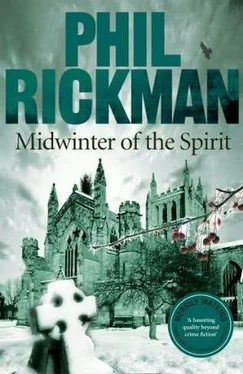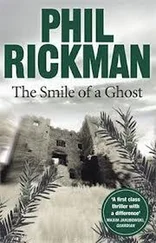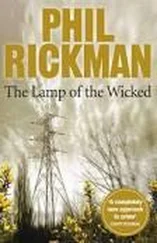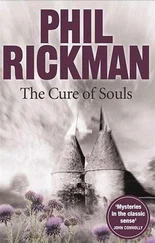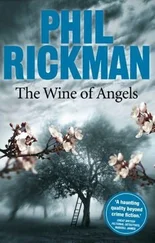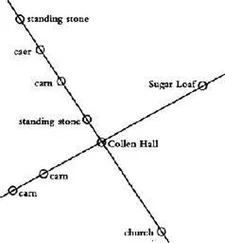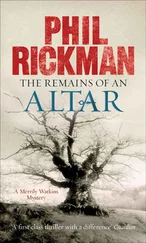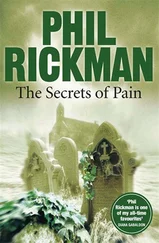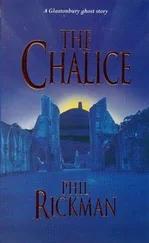Phil Rickman - Midwinter of the Spirit
Здесь есть возможность читать онлайн «Phil Rickman - Midwinter of the Spirit» весь текст электронной книги совершенно бесплатно (целиком полную версию без сокращений). В некоторых случаях можно слушать аудио, скачать через торрент в формате fb2 и присутствует краткое содержание. Год выпуска: 1999, ISBN: 1999, Издательство: Corvus, Жанр: Триллер, на английском языке. Описание произведения, (предисловие) а так же отзывы посетителей доступны на портале библиотеки ЛибКат.
- Название:Midwinter of the Spirit
- Автор:
- Издательство:Corvus
- Жанр:
- Год:1999
- ISBN:978-0-85789-017-7
- Рейтинг книги:5 / 5. Голосов: 1
-
Избранное:Добавить в избранное
- Отзывы:
-
Ваша оценка:
- 100
- 1
- 2
- 3
- 4
- 5
Midwinter of the Spirit: краткое содержание, описание и аннотация
Предлагаем к чтению аннотацию, описание, краткое содержание или предисловие (зависит от того, что написал сам автор книги «Midwinter of the Spirit»). Если вы не нашли необходимую информацию о книге — напишите в комментариях, мы постараемся отыскать её.
Midwinter of the Spirit — читать онлайн бесплатно полную книгу (весь текст) целиком
Ниже представлен текст книги, разбитый по страницам. Система сохранения места последней прочитанной страницы, позволяет с удобством читать онлайн бесплатно книгу «Midwinter of the Spirit», без необходимости каждый раз заново искать на чём Вы остановились. Поставьте закладку, и сможете в любой момент перейти на страницу, на которой закончили чтение.
Интервал:
Закладка:
‘Oh, dear God, no,’ said Clive Wells. ‘Don’t say that.’
‘Afraid so, Clive.’ Huw held out his hands, pressed together as though in prayer but bound tight, somehow blasphemously, with black videotape. ‘There she is on the settee with a bottle of whisky, nearly empty, and a bottle of pills, very empty, and Radio Two playing comforting sixties hits.’
Merrily closed her eyes. Huw wouldn’t be lying about this. He wouldn’t be that cruel.
‘And we still don’t know if she was genuine or not,’ Huw said sadly. ‘The bottom line is that our man in Northampton should not have left before administering a proper blessing to leave her in a state of calm, feeling protected. Psychological benefits, if nothing else. The worst that could’ve happened then was he’d have looked a pillock if it came out she’d made the story up. But, then, looking like a pillock’s part of the clergyperson’s job, in’t it, Merrily? Get used to it, don’t we?’
Merrily was still staring into the scorched and grinning maw of the VCR when the lights came on again.
‘First law of Deliverance,’ Huw said. ‘Always carry plenty of fuse wire.’
PART TWO
VIRUS
3
Storm trooper
THEY WENT TO look at Hereford Cathedral – because it was raining, and because Jane had decided she liked churches.
As distinct, of course, from the Church, which was still the last refuge of tossers, no-hopers and sad gits who liked dressing up.
Jane wandered around in her vintage Radiohead sweatshirt, arms hanging loose, hands opened out. Despite the presence of all these vacuous, dog-collared losers, you could still sometimes pick up an essence of real spirituality in these old sacred buildings, the kid reckoned. This was because of where they’d been built, on ancient sacred sites. Plus the resonance of gothic architecture.
Merrily followed her discreetly, hands in pockets, head down, and didn’t argue; a row was looming, but this was not the place and not the time. And anyway she had her own thoughts, her own decision to make. She wondered about consulting St Thomas, and was pleased to see Jane heading for the North Transept, where the old guy lay. Kind of.
They passed the central altar, with its suspended corona like a giant gold and silver cake-ruff. On Saturdays, even in October, there were usually parties of tourists around the Cathedral and its precincts, checking out the usual exhibits: the Mappa Mundi, the Chained Library, the John Piper tapestries, the medieval shrine of…
‘Oh.’
In the North Transept, Merrily came up against a barrier of new wooden partitioning, with chains and padlocks. It was screening off the end wall and the foot of the huge stained-glass window full of Christs and angels and reds and blues.
Jane said, ‘So, like, what’s wrong, Reverend Mum?’ She put an eye to the crack in the padlocked partition door. ‘Looks like a building site. They turning it into public lavatories or something?’
‘I forgot. They’re dismantling the shrine.’
‘What for?’ Jane looked interested.
‘Renovation. Big job. Expensive. Twenty grand plus. Got to look after your saint.’
‘Saint?’ Jane said. ‘Do me a favour. Guy was just a heavy-duty politician.’
‘Well, he was, but—’
‘Thomas Cantilupe, 1218 to 1282,’ Jane recited. ‘Former Chancellor of England. Came from a family of wealthy Norman barons. He really didn’t have to try very hard, did he?’
Well, yes, he did, Merrily wanted to say. When he became Bishop of Hereford, he tried to put all that behind him. Wore a hair shirt. And, as a lover of rich food, once had a great pie made with his favourite lampreys from the Severn, took a single succulent bite, and gave the rest away.
‘Must have had something going for him, flower. About three hundred miracles were credited to this shrine.’
‘Look.’ Jane pushed her dark brown hair behind her ears. ‘It’s the power of place . If you’d erected a burger-bar here, people would still have been cured. It’s all about the confluence of energies. Nothing to do with the fancy tomb of some overprivileged, corrupt…’
She stopped. A willowy young guy in a Cathedral sweatshirt was strolling over.
‘It’s Mrs Watkins, right?’
‘Hello,’ Merrily said uncertainly. Was she supposed to recognize him? She was discovering that what you needed more than anything in this job was a massive database memory.
‘Er, you don’t know me, Mrs Watkins. I saw you with the archdeacon once. Neil Cooper – I’m kind of helping with the project. It’s just… I’ve got a key if you want to have a look.’
While Merrily hesitated, Jane looked Neil Cooper over, from his blond hair to his dusty, tight jeans.
‘Right,’ Jane said. ‘Cool. Let’s do it.’
Under the window, a fourteenth-century bishop slept on, his marble mitre like a nightcap. But the tomb of his saintly predecessor, Thomas Cantilupe, was in pieces – stone sections laid out, Merrily thought, like a display of postmodern garden ornaments.
There were over thirty pieces, Neil told them, all carefully numbered by the stonemasons. Neil was an archaeology student who came in most weekends. It was, he said, a unique opportunity to examine a famous and fascinating medieval tomb.
Jane stood amongst the rubble and the workbenches, peering around and lifting dustcloths.
‘So, like, where are the bones?’
An elderly woman glanced in through the door, then backed quickly away as if dust from the freshly exposed tomb might carry some ancient disease.
Jane was prepared to risk it. She knelt and stroked one of the oblong side-slabs, closing her eyes as though emanations were coming through to her, the faint echo of Gregorian chant. Jane liked to feel she was in touch with other spheres of existence. Nothing religious, you understand.
‘Sorry,’ said Neil. ‘There aren’t any.’
‘No bones?’
Hands still moving sensuously over the stone, Jane opened her eyes and gazed up at Neil. He looked about twenty. An older man; Jane thought older men were cool, and only older men. It was beginning to perturb Merrily that the kid hadn’t found any kind of steady boyfriend her own age, since they’d arrived in Herefordshire.
Neil glanced at Jane only briefly. ‘What happened, Mrs Watkins, is some of the bones were probably taken away for safekeeping at the time of the Reformation. And some were apparently carried around the city during the plague in the hope they might bring some relief, and I expect a few of those didn’t come back. So he’s widely scattered, although part of the skull’s supposed to be back in Hereford, with the monks over at Belmont Abbey.’
Jane stood up. ‘So it was like completely empty when you opened it, yeah?’
‘Lot of dust,’ said Neil.
The side-slab was divided into six sections; on each a knight in armour had been carved, their swords and shields and helmets and even chain-mail fingers crisply discernible, but all the faces gone – flattened, pulped. It didn’t look as if time was entirely responsible.
‘So, in fact,’ Jane said, ‘this great historic, holy artefact is like an empty shell.’
‘It’s a shrine,’ Merrily said.
‘Of course, that’s one of the continuing problems with the Anglican Church.’ Jane smiled slyly, before sliding out the punchline. ‘So much of it’s just a hollow shell.’
Merrily was careful not to react. ‘We’re delaying you,’ she said to Neil Cooper. ‘It was good of you to let us in.’
‘No problem, Mrs Watkins. Drop in any time.’ He smiled at Merrily, ignoring Jane.
Jane scowled.
‘I expect you’ll be around quite often,’ Neil said. ‘I gather they’re giving you an office in the cloisters.’
Читать дальшеИнтервал:
Закладка:
Похожие книги на «Midwinter of the Spirit»
Представляем Вашему вниманию похожие книги на «Midwinter of the Spirit» списком для выбора. Мы отобрали схожую по названию и смыслу литературу в надежде предоставить читателям больше вариантов отыскать новые, интересные, ещё непрочитанные произведения.
Обсуждение, отзывы о книге «Midwinter of the Spirit» и просто собственные мнения читателей. Оставьте ваши комментарии, напишите, что Вы думаете о произведении, его смысле или главных героях. Укажите что конкретно понравилось, а что нет, и почему Вы так считаете.
